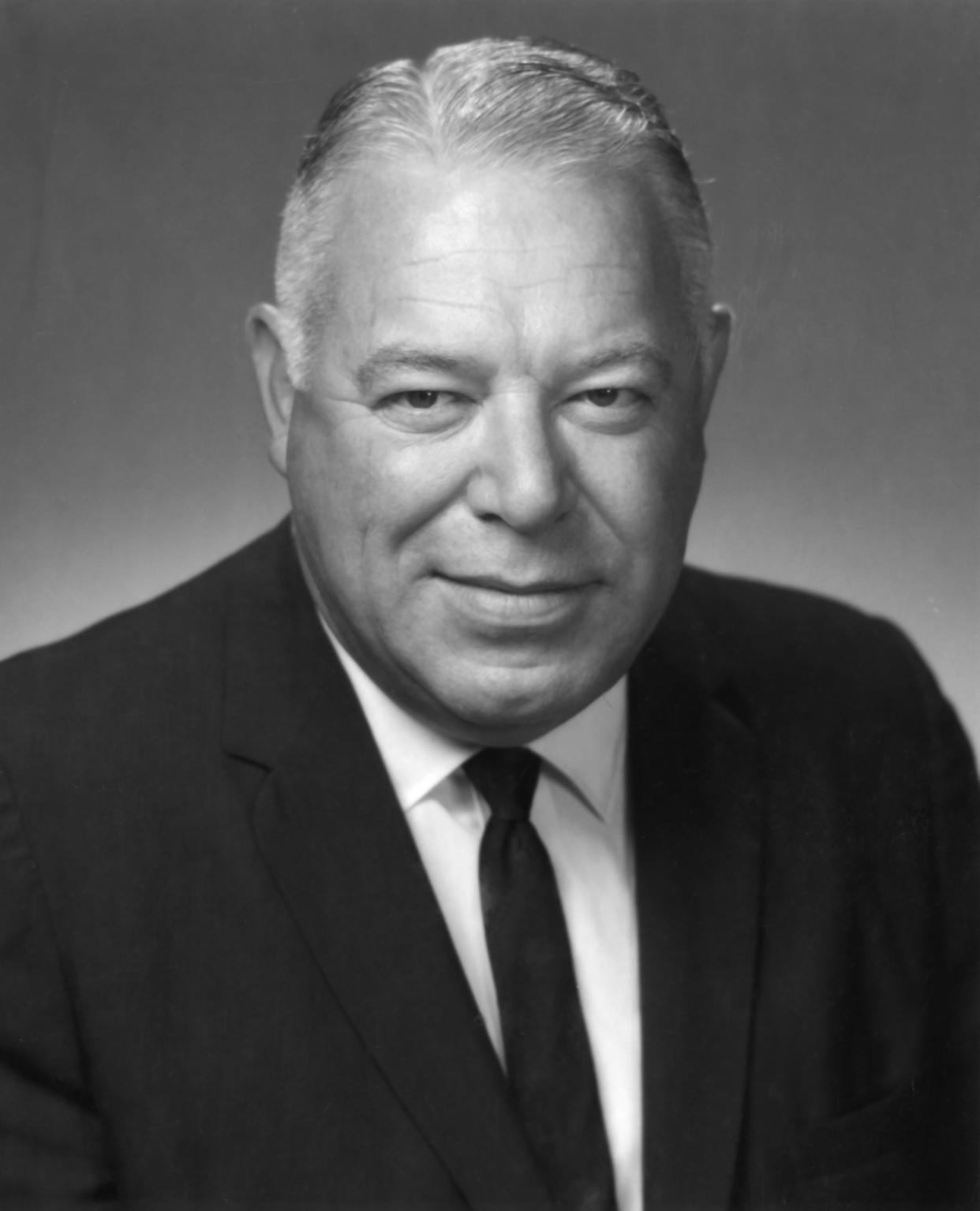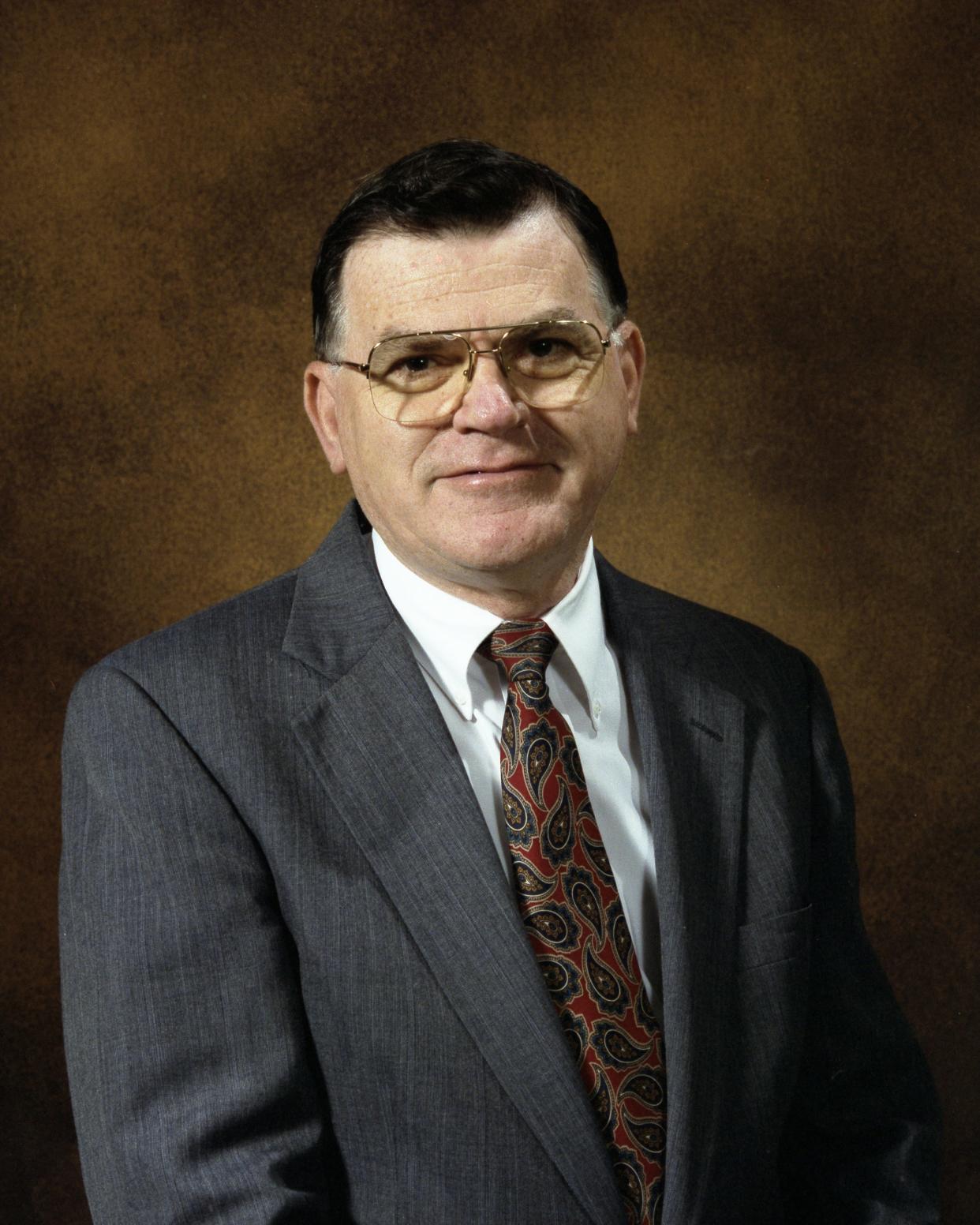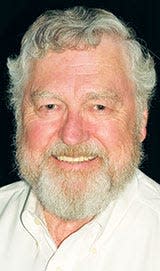"Lessons I Learned from Jack"
This "Historically Speaking" column is written by Gordon Fee and I have chosen to let it follow the last column featuring the letter from Jack Case to Bob Tuck. That letter initiated the conversation between Gordon and I and resulted in him agreeing to write this column. I think you will find that Gordon’s “Lessons I Learned from Jack” is insightful into the success of Y-12 and forms excellent basic leadership principles. These principles are as applicable today as they were when Gordon learned them and applied them to his leadership of Y-12 and later Martin Marietta Energy Systems and Lockheed Martin Energy Systems, which had responsibility for all U.S. Department of Energy facilities in Oak Ridge, Paducah, Kentucky, and Portsmouth, Ohio.

Enjoy Gordon’s reflections on Jack Case's leadership principles.
***
In reading the letter that Ray Smith recently received (from Bob Tuck’s daughter – Ray), that showed how it was in 1962 under the leadership of Jack Case, it made me think about the “lessons I learned from Jack.” You see when it was announced in 1981, that the longest serving plant manager of Y-12 was going to retire, I was given the honor of being selected to follow in his footsteps as plant manager of Y-12.
For a year I was Jack's understudy and worked with him every day, learning what leading Y-12 really meant. Jack was not the type of leader that would give motivational speeches in front of an audience. He was the type of leader that led by example and who used good old “common sense” as his best tool to solve problems. Jack was at Y-12 during ethe Manhattan Project days and came up through the ranks from being a machinist to plant manager, so he knew the plant inside and out. Here are some of the lessons I learned from Jack, a man who, in my opinion, did more to shape Y-12 into what it is today than anyone else.
1. There are no weapons parts manufactured in the Administration Building. You solve problems by getting out in the plant and going to the site of the problem. Jack expected those in administration to go out to the shops and not take valuable time away from the primary mission of making weapons parts. He taught me that the more you “walked the floors” of the chemical processing area or the machine shops, the more you will understand about how the plant functions and is known for doing the impossible when it comes to manufacturing.
2. Remember every person on the payroll is an important member of the team. Treat every person with respect and they will treat you with respect. Yes, there are people who have great skills at what they do but they don’t function well when there is lousy food in the cafeteria, or the bathrooms are filthy. So, remember the janitorial folks are just as important to the team as the smartest person in Development. So at Jack’s retirement party he only thanked one person, the janitor who cleaned his office every day for his last two years.
3. Remember you are not near as smart as half the people who are working for you. Listen to them, listen to them, listen to them. Listen to Dr. John Googin, when he tells you how to solve a complex technical problem, listen to Charlie Robinson, Bob Keil and Jim Hamby when it comes to handling union relations, listen to Hershel Hickman when it comes to working with the feds. The more you keep your mouth shut the better the plant will run. I must admit I sometimes had a hard time listening to Jack’s advice in this area.
4. Remember a leader’s main function is to handle conflict between different factions in the plant or different people. Jack was not exactly known for using the most politically correct language, so about once a month he would remind me that a true leader is one who listens to two sides of "*&^%" story, knowing both sides of an argument are exaggerating their stories and decide which of the "*&^%$" people are lying the least. Every time I faced a major problem, I remembered Jack’s advice.
5. Remember to take care of each other. In at least six times during my year under Jack, he called me into his office and handed me a one-page resume of someone and said, “Hire this one today.” I, of course, would say, “Why is this some specialist in the skills we need, what can they do?” To which Jack would respond, “It doesn’t matter what they can do, her husband passed away yesterday, he worked here 20 years, and she will need work to pay the bills. Get her on the payroll.” Today I suppose we would all be fired for doing this and not following procedures, but this was the kind of leader Jack was.

"The Funeral of Killed Parts" and the Brass Outhouse
Y-12 has always been known for its ability to do the impossible when it comes to manufacturing weapons parts and Jack loved to brag on this point. There are several stories of a time gone by that may be a little more myth than truth as they have been told over the years. One is “The Funeral of Killed Parts.” Y-12 had received a challenging assignment to make a very difficult part that required precise machining.
The shop was struggling with getting parts that met specifications and only about 50% of the parts were acceptable. Jack gave the instruction to buy a casket and put it in the center of the shop and every time an out of specification part was produced you had to put it in the casket with your name on a tag. At the end of the week when the casket was very heavy, a funeral was held in the cafeteria for the dead parts and the supervisors were pall bearers. Guess what, “the next week the yield went up to 85% and the week after 95%, proving once again Y-12 could deliver.”
Another story that may be a little more myth occurred at the quarterly plant managers’ meeting. At this meeting a decision was made as to where a particularly difficult part would be made, i.e., which plant would get the assignment. Jack was not known for speaking a lot at these meetings but when he did it was like the old advertisement says, “When Jack speaks everyone listens.”
This time in the heat of the debate about this assignment, Jack bragged about his team being able to do the job better than any other site. When the decision was made to give Y-12 the assignment, the losing plant manager said to the group, Jack, I sure am tired of hearing you brag about how Y-12 can do anything, why I bet you guys could even build a metal outhouse.”
Well, Jack took this literally and at the next meeting presented his rival with - you guessed it - a brass outhouse! And it was made from an exotic brass metal that was known to be almost impossible to weld.
As I hope you can tell, I admired this man a lot and he rightly deserved having a building named for him at “HIS PLANT,” i.e., the Jack Case Center.
People often asked me what he told me as he left his office for the last time. Well, at the time Oak Ridge National Laboratory had the "mouse house" on the Y-12 site, where there were over 200,000 mice in residence. Y-12 had nothing to do with the scientific work going on at the mouse house, but Y-12 was responsible for keeping them warm in the winter and cool in the summer.
So, Jack’s last profound advice to me was, “Remember, boy, you can miss a weapons delivery schedule and you will get your wrists slapped, but if one of them little buggers dies because they were too cold in the winter, just clean out your desk because they will fire your 'a%#'.”
To me Jack Case will always be Y-12!
***
Thank you, Gordon, for a unique and most interesting perspective on a legend at Y-12. You readers will recognize that I included the brass outhouse story last week and then also Gordon’s version this week. I felt it deserved the telling both ways. Gordon did not tell you what he was instructed to do with the special belt buckles stashed in the bottom drawer of Jack’s desk. You see, some workers would cut stainless steel pipe into short sections and weld them together in the shape of a belt buckle and often someone would present Jack with one. He just took them and put them in his desk drawer. When he retired, he told Gordon to send them up to the foundry and get them melted down.
The lessons Gordon learned from Jack are valuable ones and leaders today would do well to adapt some of the commonsense ideas. I think it is a fact that Y-12 never missed a weapons parts shipping schedule all during the Cold War and maybe even beyond. It is not something talked about outside Y-12 much, but within the ranks at the plant a lot of pride is taken in Y-12’s success over the years. I am proud to have worked there for 47 years!
D. Ray Smith is the city of Oak Ridge historian and his "Historically Speaking" columns appear each week in The Oak Ridger.

This article originally appeared on Oakridger: "Lessons I Learned from Jack"
